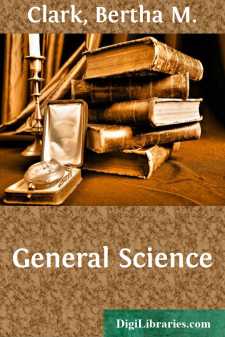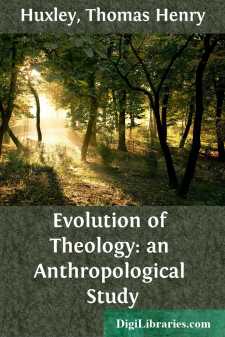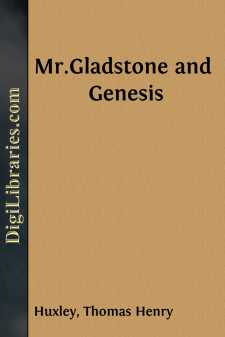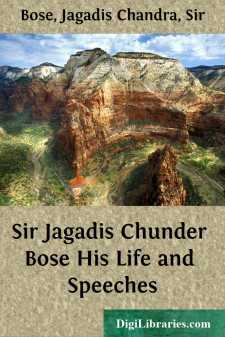Science
- Astronomy 18
- Biology 40
- Chemistry 13
- Electricity 1
- General
- History 6
- Light 1
- Paleontology 2
- Philosophy & Social Aspects 1
- Physics 3
- Relativity 2
- Study & Teaching 1
- Waves & Wave Mechanics 1
General Books
Sort by:
by:
Bertha M. Clark
CHAPTER I HEAT I. Value of Fire. Every day, uncontrolled fire wipes out human lives and destroys vast amounts of property; every day, fire, controlled and regulated in stove and furnace, cooks our food and warms our houses. Fire melts ore and allows of the forging of iron, as in the blacksmith's shop, and of the fashioning of innumerable objects serviceable to man. Heated boilers change water into...
more...
Science JOHN MILNE BRAMWELL Hypnotism: Its History, Practice and Theory John Milne Bramwell was born in Perth, Scotland, May 11, 1852. The son of a physician, he studied medicine in Edinburgh, and after obtaining his degree of M.B., in 1873, he settled at Goole, Yorkshire. Fired by the unfinished work of Braid, Bernheim and Liébeault, he began, in 1889, a series of hypnotic researches, which, together...
more...
THE FORMATIVE PERIOD The best age at which to marry—Incompatibility of temperament—A happy marriage need not be a successful one—The evils of early marriage—The wedding night, its medical aspect—The honeymoon—When marital relations are painful—Times when marital relations should be suspended—The first weeks and months of wifehood—The formative period—A true marriage—A wife's...
more...
by:
Various
INTRODUCTORY NOTE Hippocrates, the celebrated Greek physician, was a contemporary of the historian Herodotus. He was born in the island of Cos between 470 and 460 B. C., and belonged to the family that claimed descent from the mythical AEsculapius, son of Apollo. There was already a long medical tradition in Greece before his day, and this he is supposed to have inherited chiefly through his...
more...
I conceive that the origin, the growth, the decline, and the fall of those speculations respecting the existence, the powers, and the dispositions of beings analogous to men, but more or less devoid of corporeal qualities, which may be broadly included under the head of theology, are phenomena the study of which legitimately falls within the province of the anthropologist. And it is purely as a...
more...
PREFACE A collection of about 2000 questions asked by children forms the foundation on which this book is built. Rather than decide what it is that children ought to know, or what knowledge could best be fitted into some educational theory, an attempt was made to find out what children want to know. The obvious way to discover this was to let them ask questions. The questions collected were asked by...
more...
§ 1. THE GOSPEL OF SCIENCE In the days before the war the Annual Address delivered by the President of the British Association was wont to excite at least a mild interest in the breasts of the reading public. It was a kind of Encyclical from the reigning pontiff of science, and since that potentate changed every year there was some uncertainty as to his subject and its treatment, and there was this...
more...
In controversy, as in courtship, the good old rule to be off with the old before one is on with the new, greatly commends itself to my sense of expediency. And, therefore, it appears to me desirable that I should preface such observations as I may have to offer upon the cloud of arguments (the relevancy of which to the issue which I had ventured to raise is not always obvious) put forth by Mr....
more...
On the 30th November, 1858, Jagadis Chunder was born, in a respectable Hindu family, which hails from village Rarikhal, situated in the Vikrampur Pargana of the Dacca District, in Bengal. He passed his boyhood at Faridpur, where his father, the late Babu Bhugwan Chunder Bose, a member of the then Subordinate Executive Service was the Sub-Divisional Officer; and it was there that he derived "the...
more...
by:
Various
THE CAT. PART 1.walk´-ingthoughtknewsheathswatchedstrokedsmoothwon´-dergroundfore´-pawsyawnmis-take´shak´-ingtoesstretchedclaw1. Pussy came walking along the garden-path. Harry watched her, and saw that she did not like the damp ground. 2. She jumped over the pools, and then began to run, shaking her paws as she got to the house. 3. 'Now, a dog does not mind wet feet,' Harry thought;...
more...











